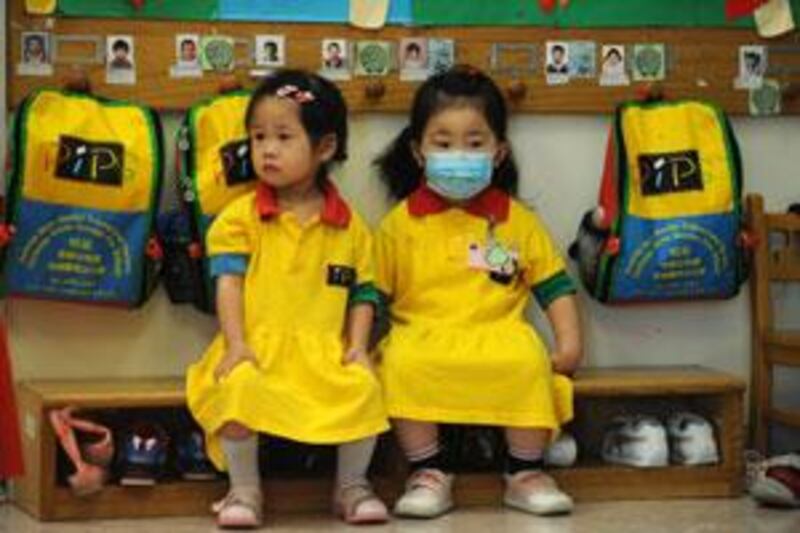BEIJING // A UN health official praised China's aggressive steps to contain swine flu, as Hong Kong and New Zealand announced new cases today. Elsewhere, Taiwan said it was bracing for a possible spike in infections when cooler weather arrives in September. Hans Troedsson, head of the World Health Organisation's (WHO) Beijing office, said China's efforts to contain the disease - which was declared a new pandemic on Thursday - marked a massive improvement over its slow response to the Sars outbreak in 2003.
"There is a huge difference compared to the Sars time," Mr Troedsson said. "What China has improved quite substantially is in its reporting and measures taken. For example, China has been reporting the cases within the stipulated time to the WHO." The communist nation's slow response to Sars, or severe acute respiratory syndrome, was widely blamed for causing that global outbreak. This time, the world's most populous country has quarantined travellers - including the New Orleans Mayor Ray Nagin - on the slightest suspicion of contact with an infected person, and it has increased surveillance for the virus with temperature checks on incoming passengers at airports.
China has confirmed 126 cases of swine flu on the mainland. There have been no reports of deaths. Mr Troedsson said the region's more developed countries, including Australia and Japan, have been the hardest hit so far, but the UN agency is concerned about how well the region's poorer countries will handle bigger outbreaks, which he said were inevitable. "It's not possible to prevent it, but you can prepare for and mitigate the impact of the larger-scale outbreak," he said. "In that respect, I think China is quite well prepared." After the formal designation of the swine flu outbreak as a global pandemic on Thursday, the Chinese health ministry spokesman Mao Qun'an told a news conference that Beijing would boost prevention measures, particularly at its border points. Mr Mao gave no details, but said all travellers would receive equal treatment - an apparent response to criticism early in the outbreak that China was discriminating against people from Mexico and other affected countries.
In the Chinese territory of Hong Kong, Thomas Tsang, an official at the Center for Health Protection, said eight new cases were reported, including six people found to be infected after returning from the Philippines, United States and Canada. The other two contracted the virus from family members earlier confirmed with swine flu. All patients are in stable condition. The territory has a total of 71 cases. New Zealand confirmed eight additional infections today, bringing its total to 35 in the biggest single-day increase since the country's first case in late April. Of the eight, only a 13-year-old girl and her 10-year-old sister - both with respiratory problems - have been admitted to the hospital, with the rest in home quarantine, said deputy director of public health, Dr Darren Hunt.
"We have no evidence as yet of community spread within New Zealand," said public health chief adviser, Dr Ashley Bloomfield. Those conditions apply as well to Taiwan, said Shih Wen-yi, spokesman for the island's centre for disease control. Those include at least 10 students who had travelled to Thailand on two separate school tours. Taiwan has a total of 36 cases, but Mr Shih said that number could rise substantially when cooler weather arrives.
*AP





